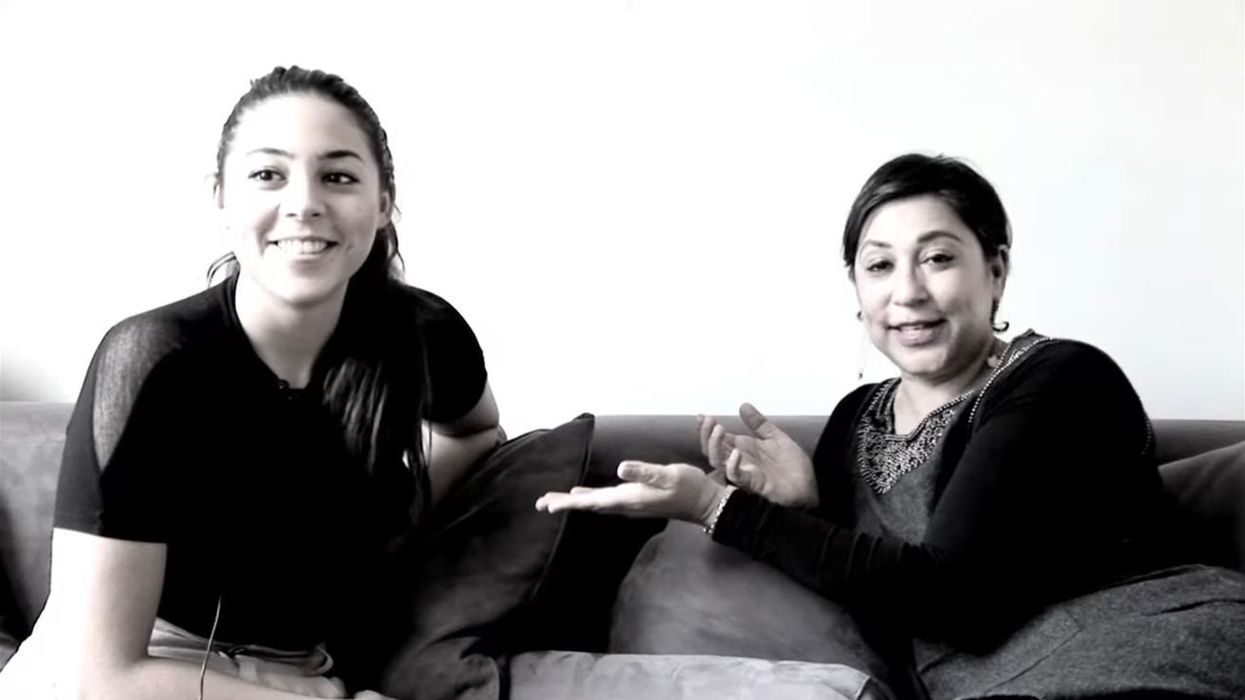Sophie Khan Levy, the actress behind EastEnders’ fiery character Priya Nandra-Hart, has been making waves not just for her on-screen drama but also for her real-life family ties. Fans were recently stunned to learn that Sophie is the daughter of Shaheen Khan, the beloved actress who played Mrs. Bhamra in the iconic 2002 film Bend It Like Beckham. The revelation has sparked a flurry of excitement among viewers, many of whom grew up watching Shaheen on screen and are now seeing her daughter carve her own path in the acting world.
Sophie’s character, Priya, stormed into Walford in 2023, bringing with her a whirlwind of drama. As Ravi’s (Aaron Thiara) ex-girlfriend and the mother of his secret daughter, Avani (Aaliyah James), Priya quickly became a central figure in the Panesar family’s turbulent storylines. From explosive family clashes to her own romantic entanglements, Priya has kept fans hooked. But off-screen, Sophie’s journey is equally compelling.
Before joining EastEnders, Sophie had already built an impressive resume. In 2023, she starred as Gabrielle Ade in the BBC’s gripping true crime drama The Sixth Commandment. She also appeared in All Creatures Great and Small as Florence Pandhi and took on the role of Beth in James Corden’s Amazon Prime series Mammals. Despite her growing list of credits, it’s her connection to her mother, Shaheen, that has recently captured the spotlight.
Shaheen Khan is a veteran of British television and film, known not just for Bend It Like Beckham but also for her roles in Casualty, Doctors, and Doctor Who. Her portrayal of Mrs. Bhamra, the traditional yet supportive mother in Bend It Like Beckham, resonated deeply with audiences, making her a household name. Now, seeing her daughter Sophie follow in her footsteps has been a delightful surprise for fans.
Social media has been buzzing with reactions. One TikTok user exclaimed, “Omg, I didn’t know the Bend It Like Beckham mum was her mum!” Another fan shared, “I love that film, and she’s so good as Priya.” The connection has even sparked conversations in households, with one viewer admitting, “I ran to tell everyone in my house they’re mother and daughter in real life!”
For Sophie, joining EastEnders was a dream come true. “I watched the show growing up, so walking onto the set and seeing familiar faces was surreal,” she shared last year. “I’m excited to see what trouble Priya gets into.”
The mother-daughter duo’s shared success actually shows the growing representation of British Asian talent in the entertainment industry. While Shaheen paved the way with her memorable roles, Sophie is now making her mark, proving that talent runs deep in their family. As fans continue to celebrate this connection, it’s clear that both women have left an indelible impact on British television.





